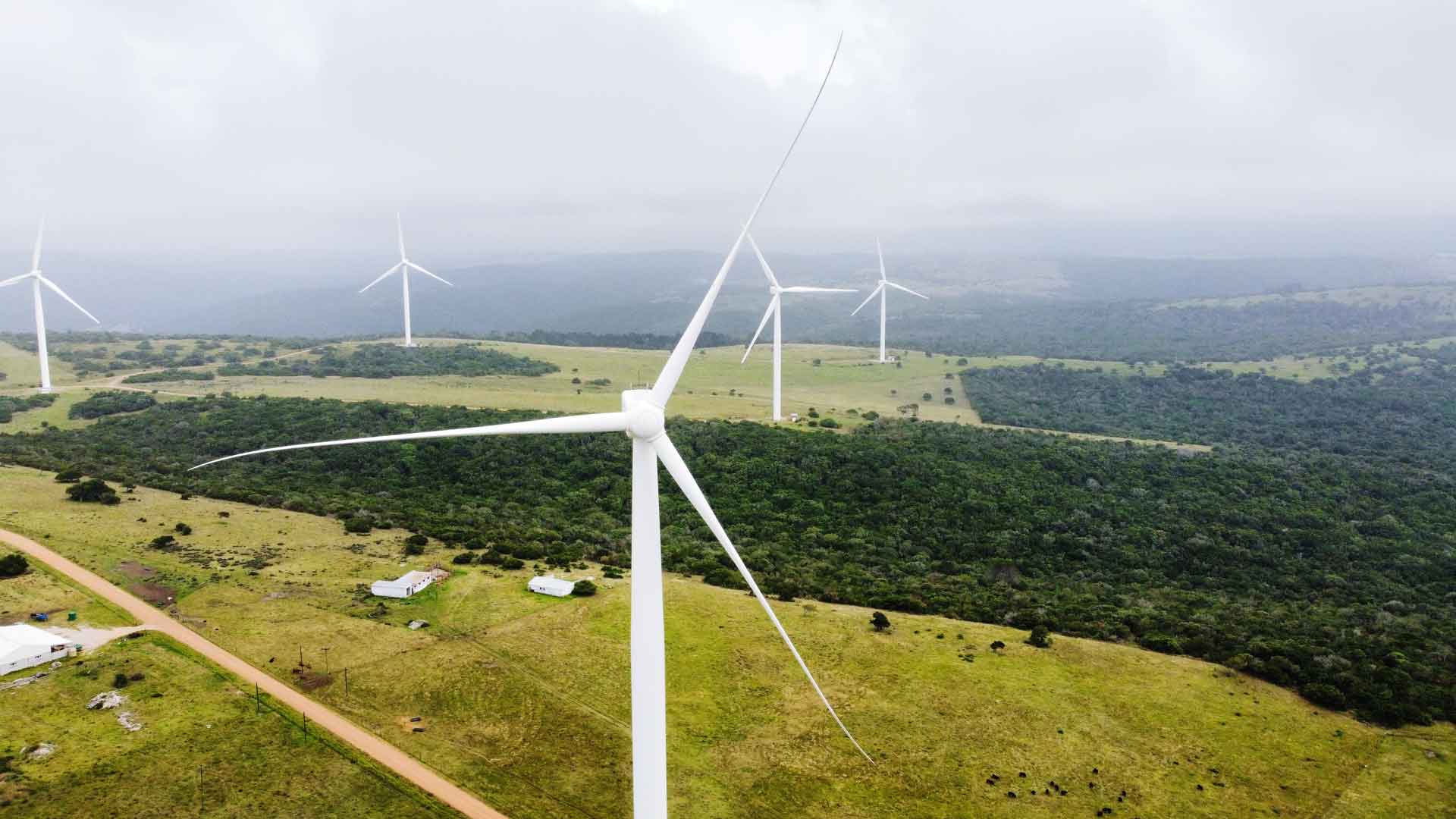Select Country
Don’t have your Nedbank ID yet?
Nedbank ID single sign-on gives you full digital access to Nedbank’s banking and lifestyle products and services on the Money app or Online Banking.
Log in
Log in to Online Banking or another one of our secured services.
Awards
Deals
- R4bn Tronox deal funds two 100MW solar plants
- Billions to help Redefine build green properties
- Harmony pursues green goals with R10 billion loan
- Cold solutions finance for cold storage facilities
- International Finance Corporation green bond fund
- Envusa energy deal: The way for renewable energy
- Paladin Energy senior debt funding partnership
- Renewable energy wind farm financing
- Stor-Age’s successful inaugural bond auction
- PlusNet, Peninsula Packaging and Barrier Film Convertors co-investment opportunity | Nedbank CIB
- IFC Green Loan | Nedbank CIB
- AngloGold appoints Nedbank CIB as sole underwriter | Nedbank CIB
- Nedbank CIB Property Finance Team achievement | Nedbank CIB
- PwC Tower, Westlands — Where Kenya's corporate vision meets world-class execution
Women of Corporate Investment Banking
Young Analyst Programme
Articles
- Africa's pathway to a climate-resilient economy
- Commercial property trends 2022
- Green energy in the developing world | Nedbank CIB
- How sustainable finance creates value
- How the property sector recovered in 2023
- FURTHER IMPACT empowerment for entrepreneurs
- There's a new buoyancy around water and sanitation
- What happens when finance meets sustainability?
- Africa’s renewable-energy projects
- Breaking barriers for energy transition in mining
- Nedbank CIB wins big at 2025 IFC Awards
- South Africa leads clean energy transformation
Conferences
Benchmark Reform
Corporate Finance
Financing
Investing
Markets
Transacting
- Login & Register
- Online Banking
- Online Share Trading
- NedFleet
- Register for Nedbank ID
- About us
- Awards
- Deals
- Explore About us
- Awards
- Deals
- R4bn Tronox deal funds two 100MW solar plants
- Billions to help Redefine build green properties
- Harmony pursues green goals with R10 billion loan
- Cold solutions finance for cold storage facilities
- International Finance Corporation green bond fund
- Envusa energy deal: The way for renewable energy
- Paladin Energy senior debt funding partnership
- Renewable energy wind farm financing
- Stor-Age’s successful inaugural bond auction
- PlusNet, Peninsula Packaging and Barrier Film Convertors co-investment opportunity | Nedbank CIB
- IFC Green Loan | Nedbank CIB
- AngloGold appoints Nedbank CIB as sole underwriter | Nedbank CIB
- Nedbank CIB Property Finance Team achievement | Nedbank CIB
- PwC Tower, Westlands — Where Kenya's corporate vision meets world-class execution
- R4bn Tronox deal funds two 100MW solar plants
- Billions to help Redefine build green properties
- Harmony pursues green goals with R10 billion loan
- Cold solutions finance for cold storage facilities
- International Finance Corporation green bond fund
- Envusa energy deal: The way for renewable energy
- Paladin Energy senior debt funding partnership
- Renewable energy wind farm financing
- Stor-Age’s successful inaugural bond auction
- PlusNet, Peninsula Packaging and Barrier Film Convertors co-investment opportunity | Nedbank CIB
- IFC Green Loan | Nedbank CIB
- AngloGold appoints Nedbank CIB as sole underwriter | Nedbank CIB
- Nedbank CIB Property Finance Team achievement | Nedbank CIB
- PwC Tower, Westlands — Where Kenya's corporate vision meets world-class execution
- Women of Corporate Investment Banking
- Young Analyst Programme
- Articles
- Africa's pathway to a climate-resilient economy
- Commercial property trends 2022
- Green energy in the developing world | Nedbank CIB
- How sustainable finance creates value
- How the property sector recovered in 2023
- FURTHER IMPACT empowerment for entrepreneurs
- There's a new buoyancy around water and sanitation
- What happens when finance meets sustainability?
- Africa’s renewable-energy projects
- Breaking barriers for energy transition in mining
- Nedbank CIB wins big at 2025 IFC Awards
- South Africa leads clean energy transformation
- Africa's pathway to a climate-resilient economy
- Commercial property trends 2022
- Green energy in the developing world | Nedbank CIB
- How sustainable finance creates value
- How the property sector recovered in 2023
- FURTHER IMPACT empowerment for entrepreneurs
- There's a new buoyancy around water and sanitation
- What happens when finance meets sustainability?
- Africa’s renewable-energy projects
- Breaking barriers for energy transition in mining
- Nedbank CIB wins big at 2025 IFC Awards
- South Africa leads clean energy transformation
- Conferences
- Benchmark Reform
- Solutions
- Corporate Finance
- Financing
- Investing
- Markets
- Nedbank Business Hub
- Transacting
- Explore Solutions
- Corporate Finance
- Financing
- Investing
- Markets
- Nedbank Business Hub
- Business hub lead form
- Business hub lead form
- Transacting
- Sustainability
- Explore Sustainability
- Contact us
- Explore Contact us
Connecting the future of energy in South Africa and India
Connecting the future of energy in South Africa and India
Staff writer
2 mins
Join the Matla-Urja 2024 to explore energy synergy between South Africa and India.
When it comes to navigating the changing landscape of the energy industry, Nedbank Corporate and Investment Banking (CIB) believes that South Africa and India share many challenges. Hence, there is a pressing need to engage with industry leaders in South Africa and India regarding to explore mutual investment opportunities.
Key topics at Matla-Urja 2024
Themed ‘Energy synergy’, Matla-Urja 2024 will cover a wide range of topics on 28 November 2024, including these:
- Efficient power equipment
- Efficient operations and innovations in the energy sector
- Emerging trends in emission-free energy
- Energy infrastructure: Focus on smart grids and metering systems.
With its massive energy infrastructure and manufacturing, India is forecasted to double over the next 7 years, reaching a market valuation of US$130 billion by 2030. It presents itself as a 1-stop solution, from the industry leader in efficient energy equipment manufacturing to the latest innovation in transmission and distribution.
Indian companies can help South Africa reform its energy infrastructure.
South Africa’s path to sustainable energy
As the world shifts towards renewable energy, India and South Africa explore various renewable energy sources to enhance their energy security. Indian companies can help South Africa reform its energy infrastructure to become more sustainable and ready for the future.
Matla-Urja 2024 will delve into different energy types, including solar, wind and hydro, highlighting their potential to transform the energy landscape. Additionally, discussions will cover implementing advanced meter systems that optimise energy consumption and improve efficiency.
In South Africa, the role of nuclear power stations will also be examined, as they contribute significantly to the country’s energy mix and help achieve sustainability goals.
The conference will convene business leaders, energy professionals, experts, energy financers and thought leaders to share insights, discuss emerging trends and collectively shape the future of the energy sector in India and South Africa, including unlocking investment potential.
Post-conference visits to Sasol and Eskom
Wits Business School (WBS) and the Consulate General of India in Johannesburg will host a 2-day conference at WBS. This event will feature the following:
- Networking opportunities
Business leaders, energy professionals and thought leaders will come together to share insights and discuss emerging trends.
- Site visits
Delegates will visit leading energy players in South Africa, including Sasol and Eskom, fostering impactful engagement.
The station’s design life and the implementation of the grid initiatives outlined in the Transmission Development Plan 2023–2032 (TDP) will unlock grid capacity, enabling more new generation capacity to connect in grid-constrained areas.
Balancing the cost of supply, environmental impact, and emissions reduction goals in the draft Integrated Resource Plan (IRP) is crucial. At the same time, just energy transitions in South Africa demands significant efforts to make the energy sector more sustainable and address climate change.
South Africa could learn from India's focus on revamping their entire energy supply
Indian experience from power deficit to power surplus
India has made remarkable strides in transforming its energy landscape, achieving a total installed capacity of 370 106 gigawatt-hour (GWh) compared to just 1 362 GWh at the time of independence in 1947. This transformation reflects the commitment of the Indian government to enhance energy security and accessibility.
India’s growing energy infrastructure
Capacity additions (2023–2032)
The following capacity additions are currently underway:
- Thermal capacity
- Under construction: 27 180 megawatt (MW)
- Total anticipated capacity by 2031–2032: 87 910 MW
- Hydro capacity
- Under construction: 18 033,5 MW (including stalled projects)
- Total anticipated capacity by 2031–2032: 42 014 MW
- Nuclear energy capacity
- Under construction: 8 000 MW
- Total anticipated capacity by 2031–2032: 12 200 MW
- Renewable energy capacity
- Under construction: 78 935 MW
- Total anticipated capacity by 2031–2032: 322 000 MW
This comprehensive approach underscores India's goal to provide secure, accessible, affordable, and sustainable energy to its vast population. The focus on revamping the entire energy supply chain is a testament to India's resilience and a valuable model for South Africa, which shares similar energy ambitions.
Amith Singh, speaker on Trends in Energy Financing in Africa
Amith Singh is a MCom graduate and a Chartered Accountant (South Africa) with a TGM from Insead.
Amith currently heads up the Energy Finance Team at Nedbank CIB, which is one of the most successful energy teams in Africa. He is a specialist transactor in the African power sector and has been in this role for most of his professional career.
He has structured, negotiated, and banked transactions across numerous geographics and technologies, and led the Energy Finance Team to steer one of the leading renewable energy programmes in Africa, including many strategic power projects in Africa.
Amith has extensive experience in the energy sector and significant relationships with world-leading independent power producers.
Related posts
See allThe growth of sustainable finance in South Africa
As part of an expert panel at the 2022 South African Real Estate Investment Trust Conference, Arvana Singh, Nedbank Head of Sustainable Finance Solutions, shared some thoughts on how sustainable finance in South Africa can help mitigate ESG-related risks.
By Staff writer
Published 30 May 2024 in nedbank:cib/articles/property

The growth of sustainable finance in South Africa
As part of an expert panel at the 2022 South African Real Estate Investment Trust Conference, Arvana Singh, Nedbank Head of Sustainable Finance Solutions, shared some thoughts on how sustainable finance in South Africa can help mitigate ESG-related risks.
Staff writer
Published 30 May 2024
South Africa’s healthcare sector requires more investment for equity
There is a need for additional investment in South Africa’s fast-growing healthcare sector to cater for the increasing needs of the country, including addressing the national hospital bed shortfall, says Anél Bosman, Group Managing Executive of Nedbank Corporate and Investment Banking.
By Staff writer
Published 08 Jul 2025 in nedbank:cib/articles/investment

South Africa’s healthcare sector requires more investment for equity
There is a need for additional investment in South Africa’s fast-growing healthcare sector to cater for the increasing needs of the country, including addressing the national hospital bed shortfall, says Anél Bosman, Group Managing Executive of Nedbank Corporate and Investment Banking.
Staff writer
Published 08 Jul 2025






